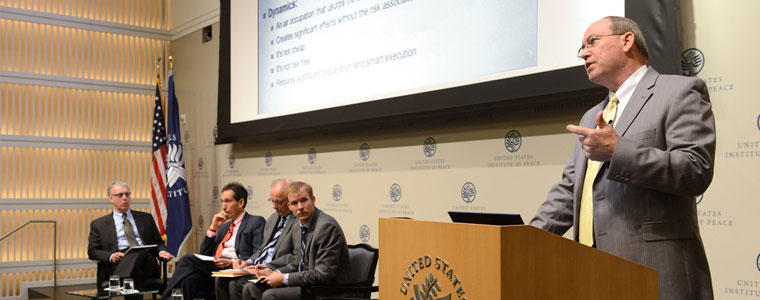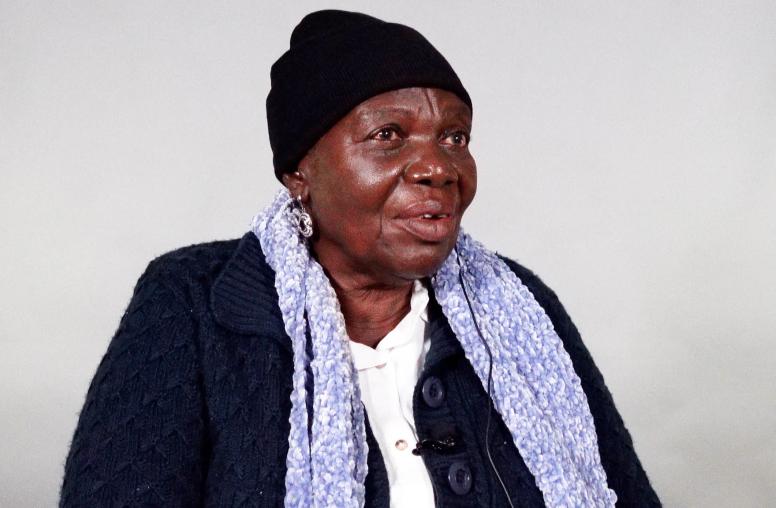A Syrian No Fly Zone: Options and Constraints
Read the Event CoverageAs violence in Syria deepens, with the Assad regime using ballistic missiles and, reportedly, nerve gas, against civilians, the U.S. and its allies continue to search for viable options to shorten the conflict and place Syria on the path to political transition. Few options have received as much attention as the idea of creating a no fly zone (NFZ) over part of all of Syria. However, while debate over the NFZ option intensifies, far less attention has been paid to the military, diplomatic, and regional complexities that such a move would entail. To inform and deepen this debate, the U.S. Institute of Peace convened a panel of distinguished experts to discuss the diplomatic, strategic, tactical, and political implications involved.

Now in its third year, with no end in sight, the Syrian uprising against the authoritarian government of Bashar al-Assad has brought devastation, death, and displacement to the country. Today, more than a quarter of Syrians have fled their homes. Some 250,000 Syrians have been killed, wounded, or are missing. By the end of 2013, half of all Syrians, more than 11 million people, could need assistance in what the U.N. High Commissioner for Refugees, António Guterres, has called the worst humanitarian crisis the U.N. has ever faced.
As violence deepens, with the Assad regime using ballistic missiles and, reportedly, nerve gas, against civilians, the U.S. and its allies continue to search for viable options to shorten the conflict, bring the regime and the opposition to the negotiating table, and place Syria on the path of political transition.
Few options have received as much attention as the idea of creating a no fly zone (NFZ) over part or all of Syria. The Syrian opposition has appealed to the international community to create a NFZ. Members of Congress have called on the Obama administration to embrace an NFZ as the most effective way to protect Syrian civilians and achieve a political solution.
While debate around the NFZ option intensifies, there has been far less attention to the military, diplomatic, and regional complexities that such a move would entail. To inform and deepen the debate over an NFZ for Syria, the U.S. Institute of Peace convened a panel of distinguished experts to discuss the diplomatic, strategic, tactical, and political implications involved.
Speakers
Steven Heydemann, Moderator
Senior Advisor, Middle East Initiatives, U.S. Institute of Peace
Ambassador Frederic C. Hof
Senior Fellow, Rafik Hariri Center for the Middle East, Atlantic Council
Lt. General David A. Deptula, USAF (Ret.)
Senior Military Scholar, U.S. Air Force Academy
Jon Alterman
Zbigniew Brzezinski Chair in Global Security and Geostrategy and Director of the Middle East Program, Center for Strategic and International Studies
Joseph Holliday
Fellow, Institute for Study of War



